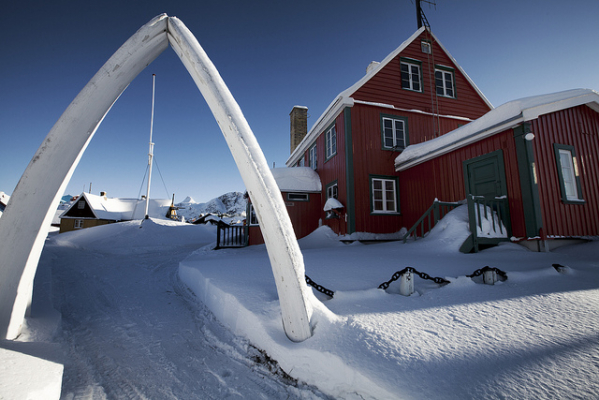Aboriginal Subsistence Whaling: Expert Workshop begins in Greenland
Around forty experts and stakeholders in aboriginal subsistence whaling will gather this week at a workshop in Greenland. Regulation of subsistence whaling is an important responsibility of the IWC. It is also a complex issue, and the workshop is in support of a Commission initiative to improve its procedures for considering aboriginal whaling catch limits.
In the past, it has proved difficult to achieve consensus when establishing catch limits. At its 2014 biennial meeting, the IWC adopted a Resolution instigating a programme of work to develop a more consistent and long term approach to agreeing limits for aboriginal subsistence whaling. This week’s workshop is integral to that work, and will contribute to proposals to improve the process that will be discussed at the next Commission meeting in 2016. The objective is to increase the likelihood of reaching consensus when the next six year blocks of catch limits are set for all aboriginal hunts in 2018.
Reaching consensus on catch limits has proved challenging for a number of reasons. There are currently four places where aboriginal subsistence hunts take place (Alaska, Chukotka, Greenland and Bequia). Each is different in terms of culture, climate, food security and hunting method, and there are even differences amongst communities in the same area. This makes developing a single review process difficult. Differences in interpretation of some of the key concepts, and the appropriate balance between tradition and the need for modern, efficient and humane killing methods have also provoked debate within and beyond the Commission.
One priority issue for the workshop surrounds ‘Needs Statements’ currently provided by each government on behalf of their subsistence whaling communities. The factors that might be considered in these statements, and how they are best described and quantified are key considerations, along with how such statements should be reviewed by the Commission. Wide ranging expertise has been sought and will be available from specialists in cultural and nutritional anthropology, social science, biology and law, from more than 12 countries and a number of inter-governmental organisations.
The workshop runs from 14-18 September in Maniitsoq, Greenland.
To read the 2014 IWC Resolution on Aboriginal Subsistence Whaling click here.
To read the Report of the Aboriginal Subsistence Working Group meeting with native hunters, including the original workshop proposal, click here.
To read more about aboriginal subsistence whaling click here.

